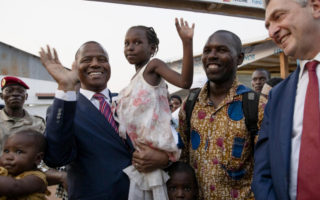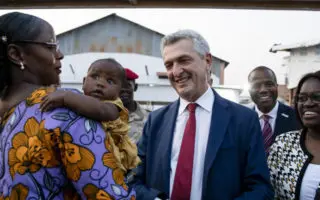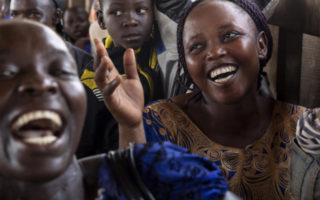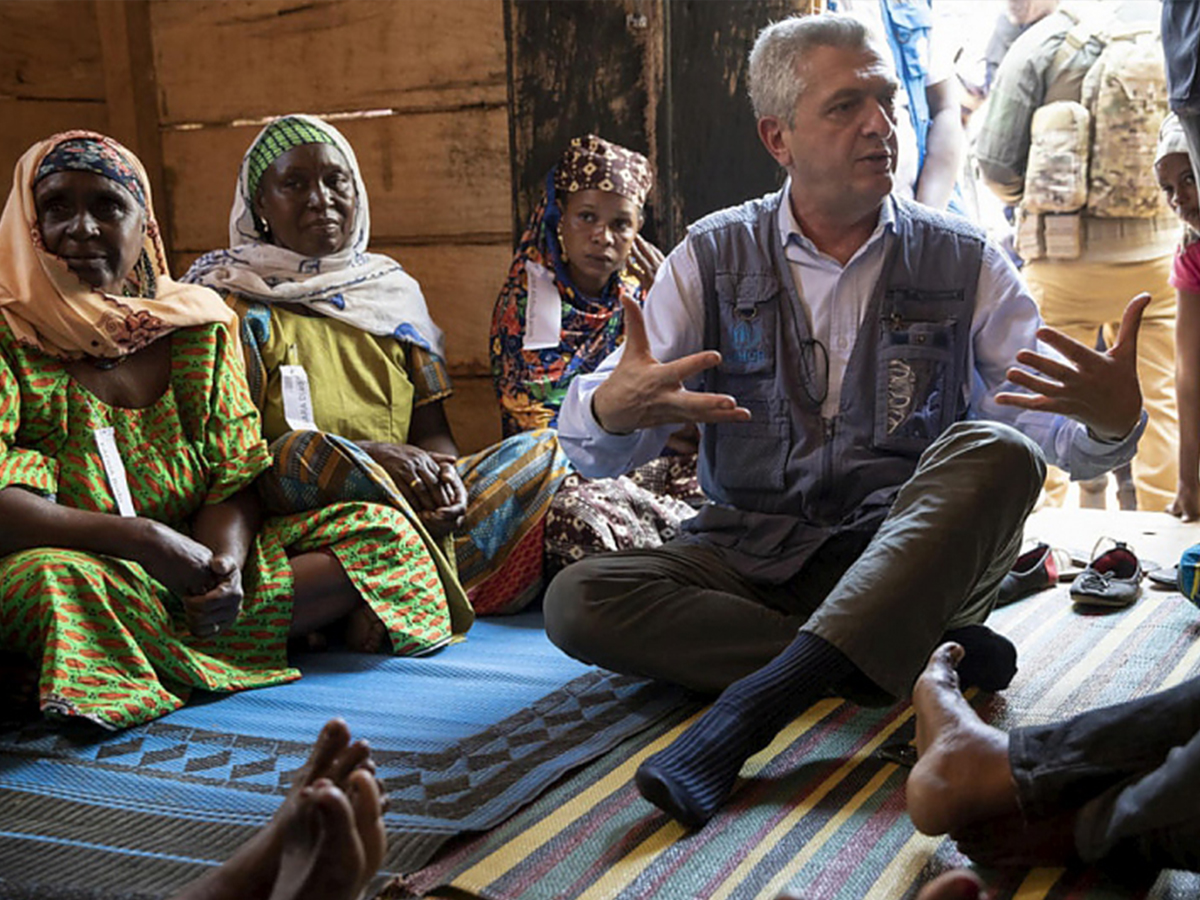
Filippo Grandi meets Central Africans who have been displaced by conflict to the city of Bambari. © UNHCR/Adrienne Surprenant
UN High Commissioner for Refugees Filippo Grandi listens to internally displaced people in Bambari and calls for a redoubled effort to help them go home.
The Élevage and Alternatif settlements in the city of Bambari seem, at first glance, normal. But the lives of the residents here have been hollowed out.
They are part of the large population of some 600,000 internally displaced people in the Central African Republic, or CAR.
“Everything was a disaster,” said Rose Yazoro, ‘Mama Rose’ to the members of the Alternatif settlement for internally displaced people, or IDPs. She is a matriarch, the mother of 13 children, the grandmother of 27.
“The conflict, the violence, it was dreadful,” she said. In 2014, armed conflict drove her and her family from their home
“They killed two of my children,” she said, adding that cattle were also killed in attacks.
Many of the people driven out were Fulani herders. The settlements in Bambari became a refuge. Now they are a way station, where life has slowed. People spend their days waiting. There is little work, and shelter and food have been provided, in part, by UNHCR, the UN Refugee Agency, and other UN partners.
“I have become like a prisoner. There is no work. We just wait.”
The IDPs in Bambari number 36,000 in seven settlements. The good news is that their number is down from over 50,000 two years ago. Peace is no longer a prospect, it is a developing reality, and some have looked at that reality and returned to their abandoned homes.
UN High Commissioner for Refugees Filippo Grandi, along with the CAR minister of Humanitarian Action and National Reconciliation Virginie Baïkoua, met with returning refugees on Monday during his visit. On Tuesday they met and listened to IDPs from different communities.
It was a festive occasion, with children waving flags and a strolling, dancing group of men serenading the visitors with cow horns.
Hamadou Gada, a 50-year-old Fulani herder who lost his cattle, summed up the residents’ frustration before the meetings.
“I have become like a prisoner. There is no work. We just wait,” he said.
The meetings gave voice to other frustrations. With little money, families find it difficult to buy medicines for sick members. The cost of sending children to fee-paying schools is another problem. The biggest obstacle of all, they said, was undertaking to return to the places where they had once lived. They needed government help to rebuild homes and herds.
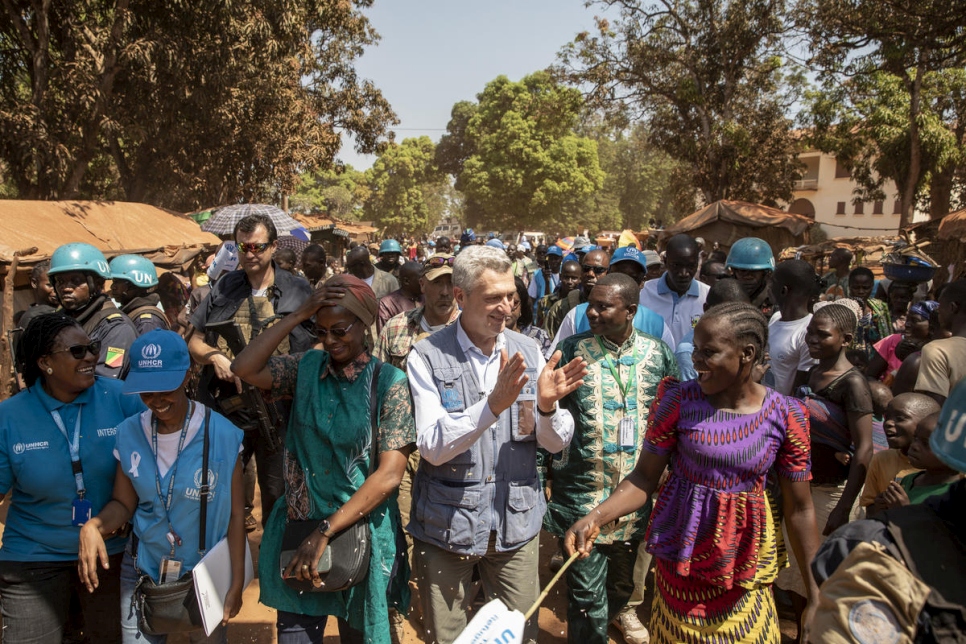
UN High Commissioner for Refugees Filippo Grandi visits the Alternatif site for displaced people in the Central African Republic city of Bambari. © UNHCR/Adrienne Surprenant
Grandi told them he had received the message.
“As well as humanitarian assistance,” he said, “I have committed myself with the government to mobilize as many resources as possible to deal with this challenge.”
The comment was greeted with a burst of applause.
“No peace without return. No return without peace.”
The High Commissioner underlined the need for greater protection of women.
“As we move progressively from humanitarian work to rebuilding the lives of these people away from exile into their homes, particular attention must be given to women to take them away from poverty and the exposure to exploitation and violence,” he said.
But Grandi also encouraged the communities to live together. The civil unrest which broke out in 2013 displaced more than a quarter of the population and contributed to tensions between the two communities.
He concluded with a cautious message of hope.
“There will be no peace without the return of a large part of the population that is displaced, but there will be no return without peace.”
The hope offered, however paradoxical, was a pleasing result for Mama Rose.
“Go home. Of course, if we could get help,” she said. “I would be ready to go even today with that.”
Originally published on UNHCR on 4 December 2019



